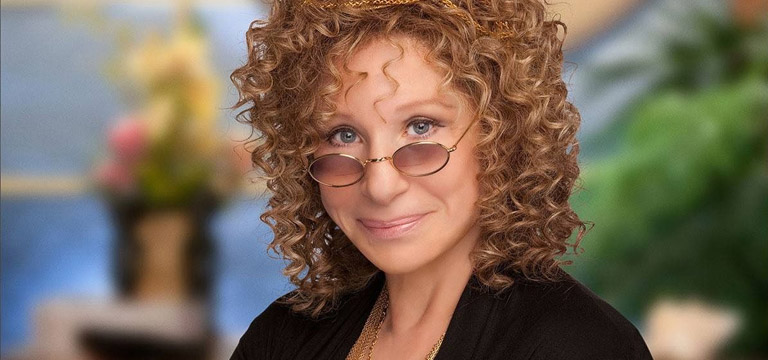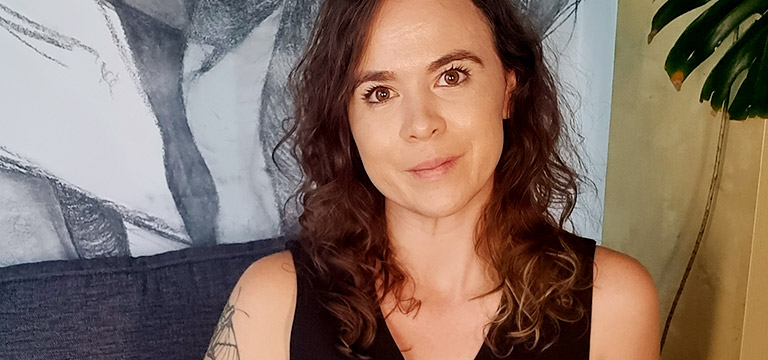
When I was 12 years old, I thought Roz from Meet the Fockers was the most brilliant character. Played by Barbara Streisand, she was a fiery yet grounded, curly haired, confident, outspoken women who worked are a sex therapist and tantra expert. I remember thinking, I want to be like her when I grow up.
As I progressed through a Bachelor of Psychology and Counselling, I was required to complete a unit called Sexuality and Therapeutic Practice. The lecturer at the time sparked a fire within me to learn. It was this unit that introduced me to the work of Esther Perel who spoke about the secret to desire in a long-term relationship. A handful of years later I am about to complete a Master of Sexology that has equipped me with the skillset to help others with issues related to sexual health.
Watch: Esther Perel on the secret to desire in a long term relationship. Article continues below.
What is a sexologist?
In this article:
Simply put, a sexologist is a professional who studies sexuality and in their own unique way assists in the dissemination of their knowledge on the topic. Sometimes sexologists research and publish journal articles to share their findings. Other times, sexologists may host education workshops for adults or even attend high schools to equip teenagers with information to make safe and healthy life choices. Most often, sexologists tend to fall into one of three main categories which are:
- Education
- Research
- Therapy
My experience

I primarily work within sexology consulting and sex counselling. Prior to this world, I worked with a lot of mental health, family systems and trauma. I come to the work I do now with a holistic and multidisciplinary approach when supporting clients to achieve their goals. Sexuality is a total melting pot. When I counsel clients I consider lifestyle, mental health, relationship dynamics, self-esteem, physical health and other health conditions. They all play a part in how you experience your sexual self.
I often work with clients who experience a lack of desire for sex or a drop in libido. And this could be in partnered sex or solo play. Stress levels play a huge role in how much you may desire to have sex or masturbate. If this sounds like you, I suggest you book a slot of time with yourself or partner, and prioritise it. Like having a dinner date for example. Use this time to focus on sensation and experience as opposed to feeling as though you need to have an orgasm or perform for your partner (or yourself).
My clients often feel pressured to perform in a certain way when having sex, or to achieve an orgasm every time they are intimate. I’ll be very honest with you – we don’t need to be having an orgasm every time we have sex or masturbate. You can decide to end sex whenever you like.
My top sexologist tip
The biggest problem I see is people focusing on how they look and if they achieve an orgasm, rather than how they feel in their bodies. I often suggest taking sex off the table for a little while and simply exploring non-genital stimulation of the body. This may look like playing with temperature, pressure, and texture. For example, using the heat from dripping candles or a massage with sensual oil. Other sensation play tools like floggers and feather crops can encourage you to focus on sensations in the body. You may even like to wear a blindfold while experiencing the above as it may build anticipation or shield you from seeing your partners expressions.
Read more: How to make consent sexy by Amy Louise
What else can a sexologist do?
Each sexologist operates differently. Often, sexologists specialise in a niche area of interest such as LGBTQIA+, disability, somatic, women’s health, or sexual dysfunction. The list goes on. We all have a different relationship with and experience of our sexuality, gender, and body. Sexologists bring that to their individual practices.
The following conditions are all things a clinical sexologist or sex therapist may work with. But one sexologist probably won’t do everything.
- Erectile dysfunction
- Premature ejaculation
- Exploring ethical non-monogamy/ polyamory
- Painful sex
- Vaginismus
- Vulvodynia
- Change in desire levels
- Exploring kinks
- Difficulty to, or inability to orgasm
- Sexual shame
- Discrepancy of desire in a couple
- Sexual orientation and gender (exploring and affirming)
- Sexual trauma
- Lack of understanding about how sex works
What sexology is not
Sexology is strictly a non-contact profession which may provide talk therapy, education, consulting, or research. It is important to recognise there is a bit of room for cross-over with somatic sexology as it may involve yoni massage, demonstrations, and hands-on support. When seeking out a sexologist to work with, I would recommend asking for their qualifications, experience and approach to determine the best option for you.











